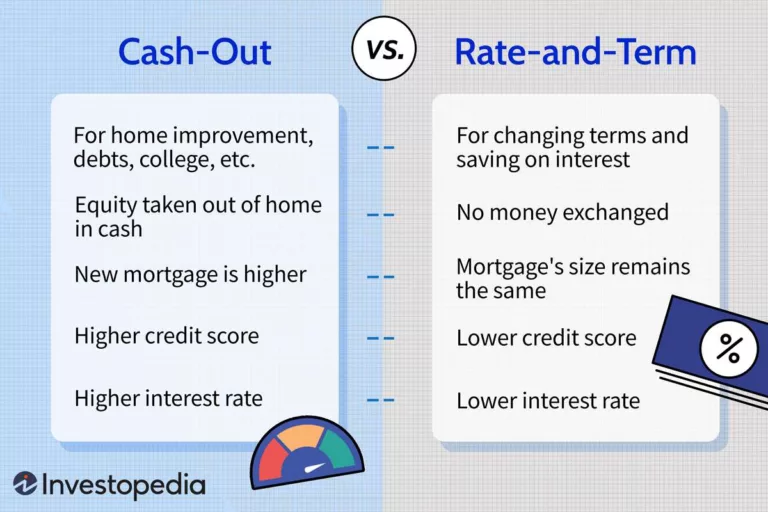Are Credit Unions Good for Mortgages? Discover the Hidden Advantages Now!
Credit unions are a good option for mortgages due to their competitive interest rates and personalized customer service. As non-profit financial institutions owned by members, credit unions focus on meeting the needs of their members rather than maximizing profits.
This allows credit unions to offer lower interest rates and fees while still providing high-quality service. Additionally, credit unions often have flexible lending criteria, making it easier for borrowers with less-than-perfect credit to qualify for a mortgage. With their member-focused approach, credit unions can be a beneficial choice for individuals seeking a mortgage that meets their financial needs and preferences.

Credit: www.openclose.com
Benefits Of Choosing A Credit Union For A Mortgage
When it comes to purchasing a home, choosing the right mortgage lender is crucial. Credit unions, often overlooked in favor of traditional banks, offer several benefits that can make them an excellent choice for your mortgage needs. In this article, we will explore the advantages of credit unions, including competitive interest rates and flexible terms and conditions. Read on to find out why credit unions may be the right option for your mortgage.
Competitive Interest Rates
One of the main advantages of choosing a credit union for your mortgage is the potential for competitive interest rates. Credit unions are not-for-profit organizations, which means they can often offer lower rates compared to big banks. By choosing a credit union, you can save a significant amount of money over the life of your mortgage. Lower interest rates mean lower monthly payments and the potential to pay off your mortgage faster.
Flexible Terms And Conditions
In addition to competitive interest rates, credit unions also provide flexible terms and conditions for their mortgage loans. Unlike traditional banks, credit unions are more willing to work with you to find a loan that fits your unique financial situation. Whether you are a first-time homebuyer or looking to refinance, credit unions can offer personalized solutions to meet your specific needs.
With flexible terms, you can choose the loan duration that suits you best, whether it’s 15 years or 30 years. A credit union may also be open to negotiating terms such as down payment percentage or origination fees, making the mortgage process more affordable and accessible.
1. How Credit Unions Offer Competitive Interest Rates
Credit unions can be a good choice for mortgages as they offer competitive interest rates, helping borrowers save money in the long run. With lower overhead costs compared to traditional banks, credit unions pass on the savings to their members, making them an attractive option for homebuyers.
Collaborative Ownership Structure
Credit unions are unique in their collaborative ownership structure, which sets them apart from traditional financial institutions. Instead of operating for the sole benefit of shareholders, credit unions are owned by their members, who are also their customers. This cooperative model allows credit unions to prioritize the needs and interests of their members, including offering more competitive interest rates on mortgages.Lower Overhead Costs
One of the reasons why credit unions can offer competitive interest rates on mortgages is because of their lower overhead costs. Compared to big banks, credit unions operate on a smaller scale and serve specific communities or employee groups. This localized focus allows credit unions to keep their operational costs lower, resulting in cost savings that can be passed on to their members in the form of lower interest rates. Credit unions do not have to contend with the same level of bureaucracy and high administrative costs that larger financial institutions face. By operating more efficiently and avoiding unnecessary expenses, credit unions are able to provide competitive and affordable mortgage rates to their members.Comparison Table: Credit Union Vs. Traditional Bank
To illustrate the differences between credit unions and traditional banks in terms of mortgage interest rates, let’s compare the two in a table.| Factor | Credit Union | Traditional Bank |
|---|---|---|
| Ownership Structure | Collaborative with member ownership | Shareholder-driven |
| Overhead Costs | Lower due to localized operation | Higher due to larger scale |
| Mortgage Rates | Competitive and affordable | Varies, sometimes higher |
2. Flexible Terms And Conditions Offered By Credit Unions
When searching for a mortgage, many borrowers focus on finding the best terms and conditions that suit their financial goals and circumstances. This is where credit unions stand out from traditional financial institutions. With their personalized approach to lending and ability to work with members’ unique circumstances, credit unions offer flexible terms and conditions that can make the mortgage process smoother and more tailored to your needs.
Personalized Approach To Lending
One of the key advantages of obtaining a mortgage from a credit union is their personalized approach to lending. Unlike big banks that may treat borrowers as mere numbers, credit unions prioritize building relationships with their members. They take the time to understand your specific situation and financial goals, allowing them to offer mortgage solutions that are customized to your needs.
In a credit union, you can expect a face-to-face meeting with a loan officer who will guide you through the mortgage application process. This personalized interaction ensures that your unique circumstances, such as fluctuating income or credit challenges, are taken into account. The loan officer will work with you to find the most suitable terms and conditions that align with your financial situation, giving you the confidence that you’re making the right decisions for your future.
Ability To Work With Members’ Unique Circumstances
Credit unions understand that each member’s financial circumstances are different. They recognize that life can be unpredictable, and not everyone fits into the traditional lending criteria set by big banks. This is where credit unions shine, as they have the flexibility to work with borrowers whose situations may not meet the strict requirements of other lenders.
For example, if you have a lower credit score, a credit union may still be willing to work with you to secure a mortgage. They can evaluate your overall financial history and consider factors beyond just your credit score to determine your eligibility. This opens up opportunities for individuals who may have experienced financial setbacks in the past but have made positive strides to improve their situations.
Furthermore, credit unions can offer unique solutions for borrowers who have non-traditional employment arrangements, such as being self-employed or working on a contract basis. Unlike some traditional lenders that may perceive these situations as risky, credit unions often take a more holistic view of a borrower’s income stability and can assess your ability to repay the mortgage based on your individual circumstances.
Ultimately, credit unions understand that the mortgage process is not one-size-fits-all. They strive to provide options and terms that cater to their members’ specific needs. By offering a more personalized approach and the flexibility to work with unique circumstances, credit unions make home ownership more accessible and achievable for a broader range of individuals.

Credit: www.consolidatedccu.com
Drawbacks Of Traditional Banks For Mortgages
Credit unions offer several advantages over traditional banks for mortgages. They typically offer lower interest rates, more personalized service, and flexible lending criteria, making them a great option for borrowers seeking a mortgage loan.
Higher Interest Rates
Traditional banks often charge higher interest rates for mortgages compared to credit unions. These banks have higher overhead costs, including maintaining physical branches and paying shareholder dividends, which can be passed on to borrowers in the form of higher interest rates. These higher rates can significantly increase the overall cost of borrowing for homeowners. For example, let’s consider a scenario where a traditional bank offers an interest rate of 4.5% on a mortgage, while a credit union offers the same mortgage with an interest rate of 4%. Over the course of a 30-year mortgage, this seemingly small difference in interest rates can result in thousands of dollars in additional interest payments.Rigid Lending Criteria
Another drawback of traditional banks for mortgages is their stringent and inflexible lending criteria. Traditional banks usually follow strict underwriting guidelines, making it more difficult for borrowers with less-than-perfect credit or unique financial situations to secure a mortgage. This can be especially problematic for first-time homebuyers or self-employed individuals who may not meet the strict criteria set by traditional banks. Unlike traditional banks, credit unions often have more lenient lending criteria. They prioritize member satisfaction and community support, allowing them to consider a borrower’s individual circumstances and offer more personalized loan options. This flexibility can greatly benefit borrowers who may not meet the rigid lending criteria enforced by traditional banks. In conclusion, while traditional banks have been a go-to choice for many borrowers seeking mortgages, they do have their drawbacks. Higher interest rates and rigid lending criteria can make it challenging for some individuals to obtain a mortgage from a traditional bank. Credit unions, on the other hand, offer lower interest rates and more flexible lending criteria, making them an attractive alternative for homeowners in search of more favorable mortgage terms. By considering credit unions as an option, borrowers can potentially save money and find a mortgage that suits their unique needs and circumstances.Why Credit Unions May Go Above And Beyond For Their Members
When it comes to mortgages, credit unions have emerged as a reliable alternative to traditional banks. One of the main reasons for this is their commitment to going above and beyond for their members. Credit unions prioritize member satisfaction and adhere to community-oriented values that set them apart. In this section, we will explore why credit unions may go the extra mile for their members, focusing on their dedication to member satisfaction and community-oriented values.
Focus On Member Satisfaction
It’s no secret that credit unions place a strong emphasis on member satisfaction. Unlike banks that often prioritize profits, credit unions are not-for-profit organizations. Their primary goal is to serve their members’ best interests rather than making bottom-line profits.
Because of this member-centric approach, credit unions often provide personalized service that caters to the unique needs of their members. This includes offering competitive interest rates, flexible loan terms, and dedicated mortgage experts who guide members through the entire mortgage process.
Credit unions understand the importance of providing exceptional customer service. They strive to make each member feel valued and supported throughout their mortgage journey. Whether it’s answering questions, assisting with paperwork, or resolving any concerns, credit unions consistently go above and beyond to ensure member satisfaction.
Community-oriented Values
Unlike large banking institutions, credit unions are deeply rooted in their communities. They prioritize community development and reinvest their earnings back into the local regions they serve. This community-oriented mindset extends to their mortgage services as well.
By offering mortgages to their members, credit unions contribute to the growth and stability of local communities. They support homeownership, which strengthens neighborhoods, fosters economic growth, and promotes stability. Credit unions often collaborate with community organizations and partner with local businesses to create homeownership programs and provide educational resources to their members.
These community partnerships allow credit unions to offer unique benefits to their members, such as down payment assistance programs, closing cost grants, or special first-time homebuyer incentives. Credit unions genuinely care about the well-being of their members and the communities they serve, which is why they strive to make homeownership more accessible and affordable.

Credit: www.ncino.com
Frequently Asked Questions On Are Credit Unions Good For Mortgages
Is It Easier To Get A Mortgage From A Credit Union Or A Bank?
Getting a mortgage from a credit union or a bank depends on individual circumstances. Both have pros and cons, such as credit unions often offering lower interest rates, while banks may have more loan options. It’s best to compare and assess your specific needs to find the easier option.
What Credit Score Do Credit Unions Require For A Mortgage?
Credit unions typically require a minimum credit score for a mortgage, usually around 620-640. However, this requirement can vary depending on the specific credit union and the type of mortgage you are applying for. It’s best to contact the credit union directly for more information on their specific requirements.
What Is The Downside Of Banking With A Credit Union?
The downside of banking with a credit union is limited physical locations and ATMs.
Why Are Credit Union Mortgage Rates Lower?
Credit union mortgage rates are lower because credit unions are not-for-profit organizations. They pass on the savings to members by offering lower rates and fewer fees. This makes credit unions a more affordable option for borrowers seeking a mortgage.
Conclusion
Overall, credit unions can be a great option for mortgages. They often offer competitive interest rates and personalized customer service that can make the mortgage process smoother. Additionally, credit unions have a better understanding of the local community and can cater to the specific needs of their members.
With their focus on member satisfaction and financial stability, credit unions are worth considering when seeking a mortgage. Rest assured, by choosing a credit union, you are making a wise decision for your mortgage needs.




